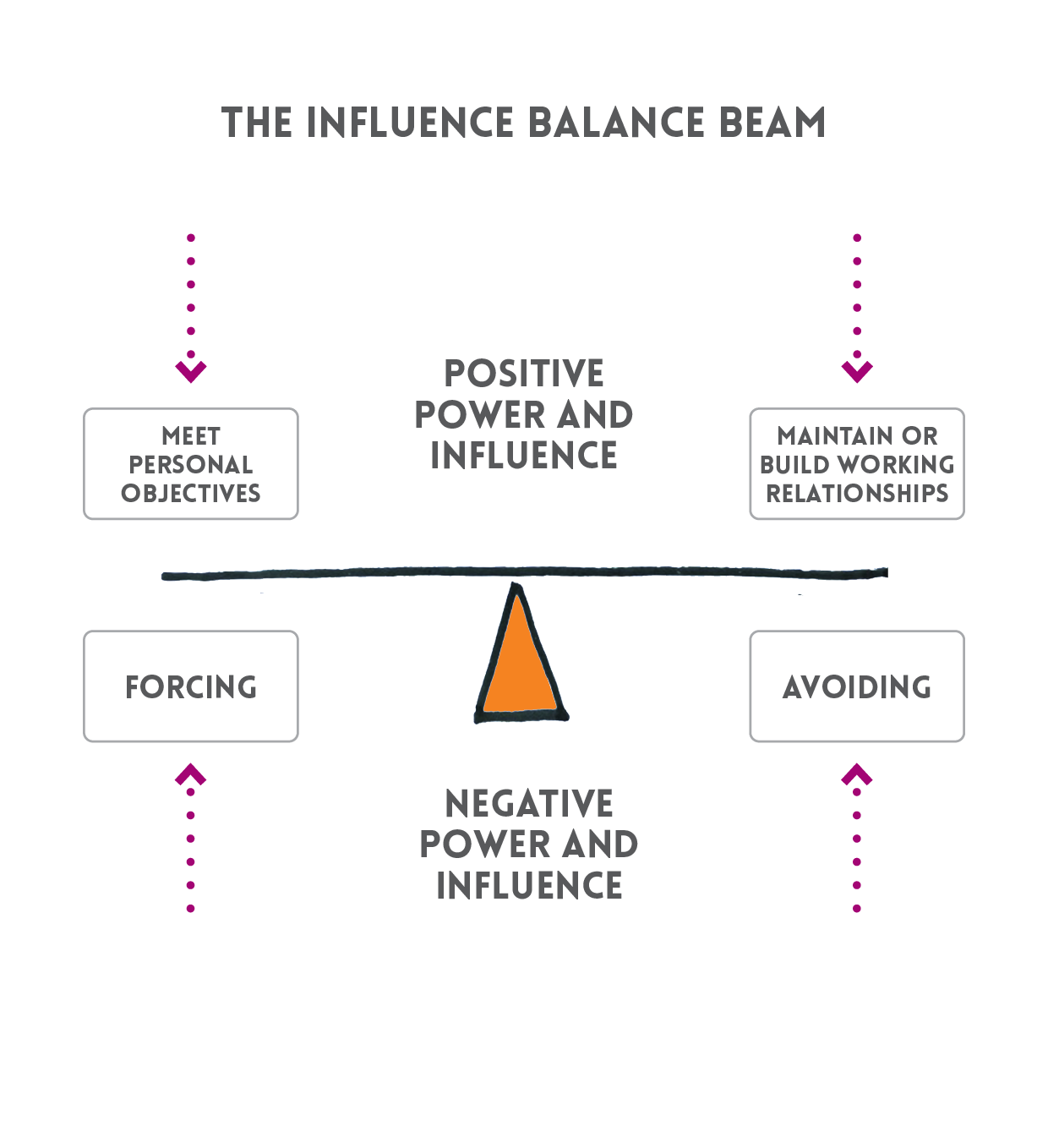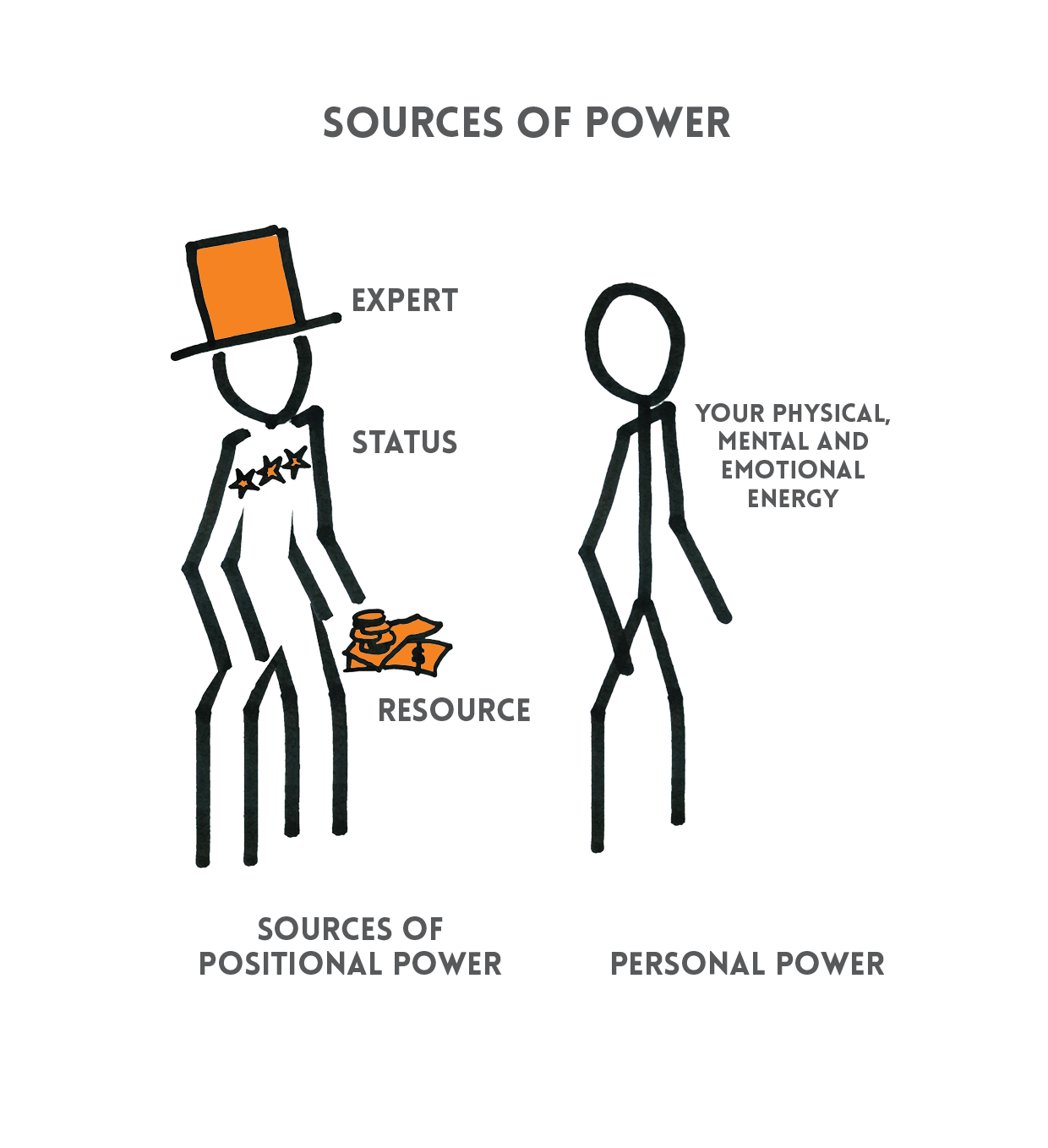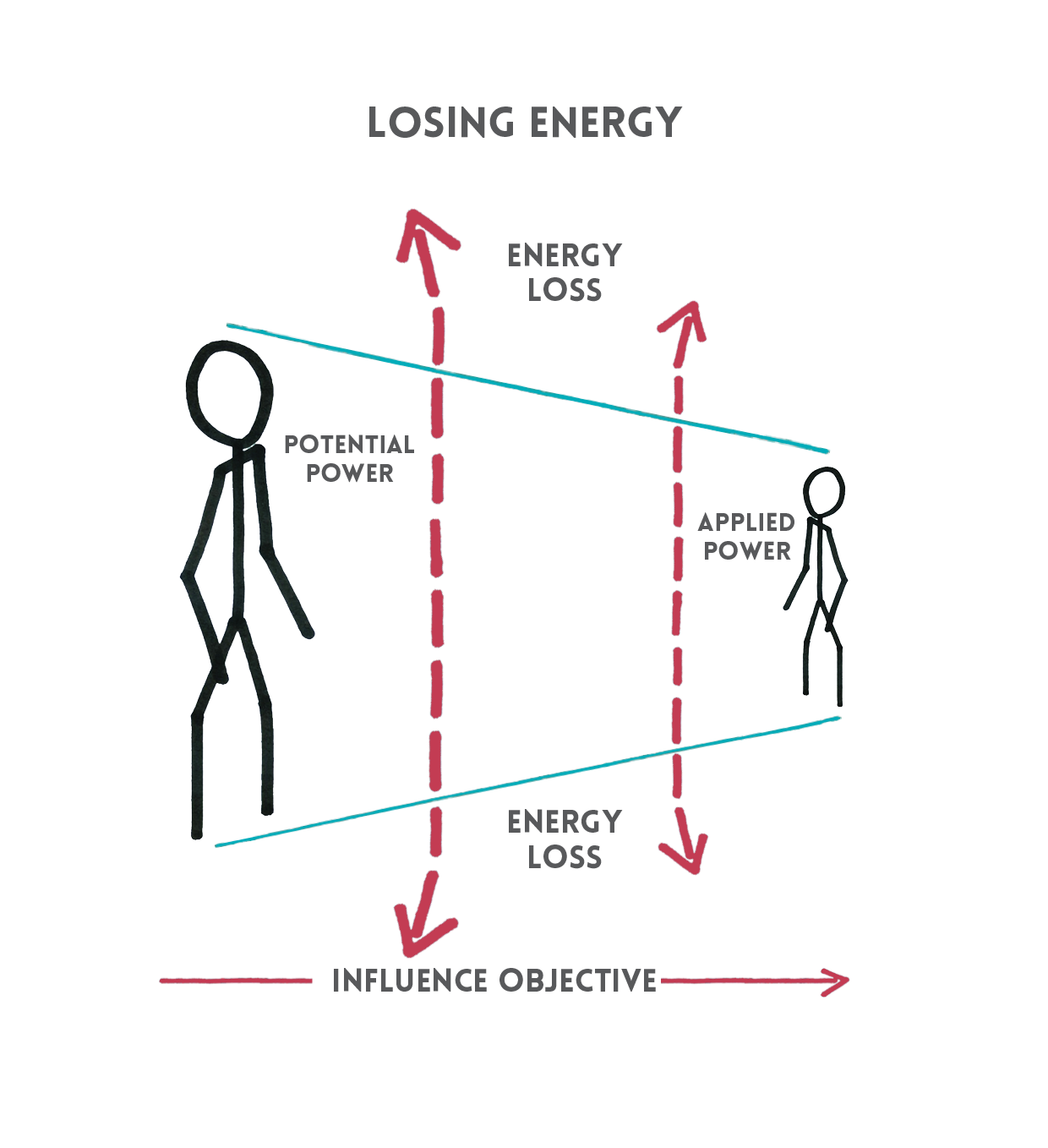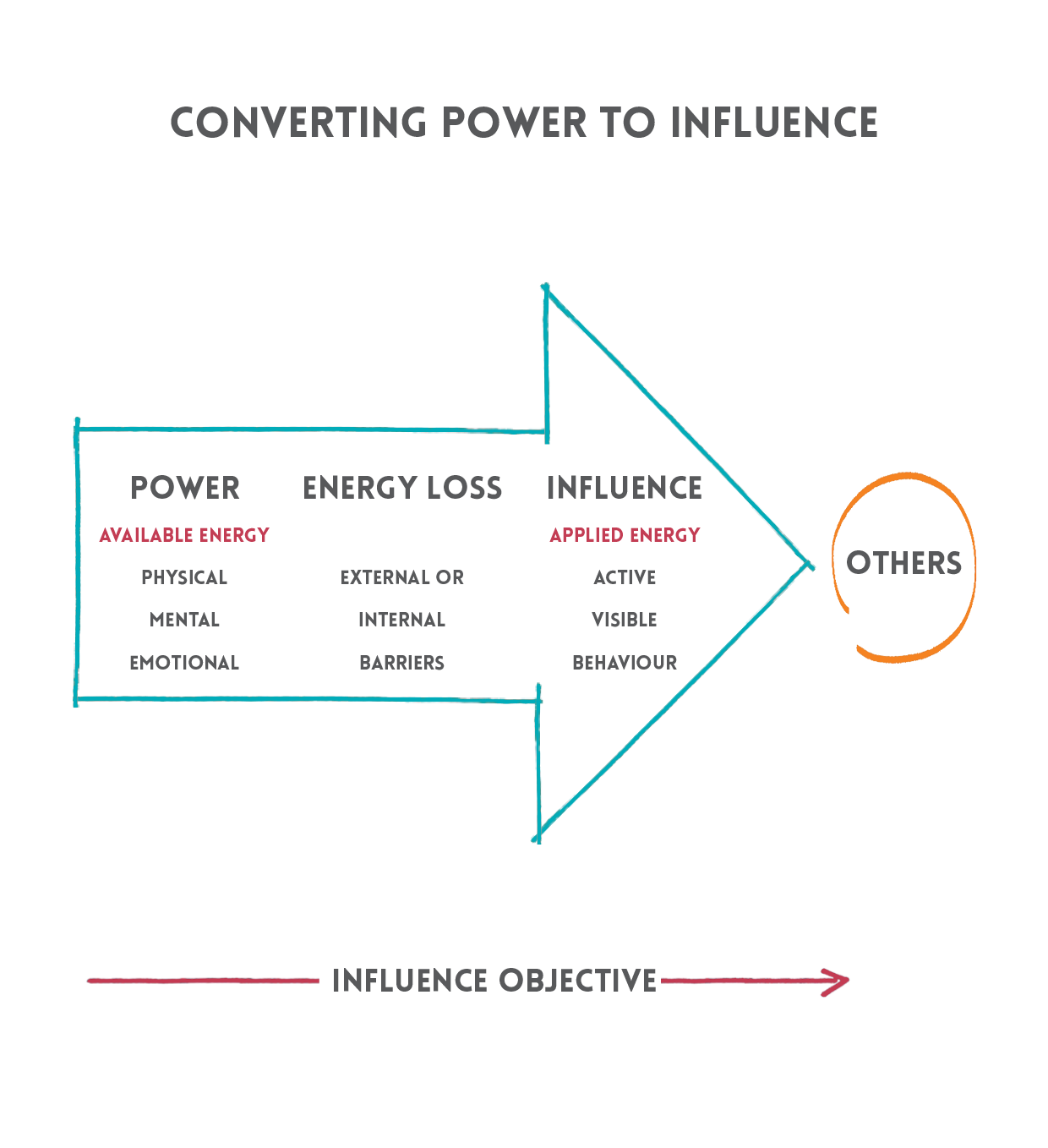Let’s take a look at what we mean by the words Positive, Power and Influence.
Positive
Any person who works in an organisation has two main needs:
- Meet personal objectives
- Maintain or build productive working relationships
Maintaining a balance between our objectives and relationships is difficult.
Occasionally our influence energy may be blocked externally: the person we are trying to influence resists, or fails later to implement the agreement we obtained.
At other times, our influence energy may be blocked internally: we are unable to carry out the most appropriate Style for the situation.
Faced with this difficulty, we may resort to negative influence approaches by either:
- Forcing: ignoring the importance of the relationship or—worse—damaging it in order to achieve our objective. Damaging the working relationship is a high price to pay, since ongoing difficulties can be unproductive for both people and the organisation.
- Avoiding the influence situation entirely, moving away from our Influence Objective so as not to disrupt the relationship. Avoiding places our own objectives at risk.

Positive use of personal power and influence provides the balance: we can meet personal objectives and maintain or build relationships at the same time. Effective influencing keeps us from Avoiding or Forcing.
Positive use of personal power doesn’t mean that we should always maintain a perfect balance between task and relationship. Sometimes we need to pay more attention to the task. Other times it may be more appropriate to focus on the relationship. The key is to be conscious of where our energy is focussed and to ensure that we are not Forcing or Avoiding.
Throughout this programme, we will strive for positive influence: balancing organisational and personal objectives with maintaining or building working relationships.
Power
Power is the available energy we have to get things done and influence people. We all have personal power and, in organisations, we have access to positional power as well.
Positional Power
Positional power is power that comes with your position in an organisation. The organisation allots a portion of its power and resources to each employee to enable them to carry out specific tasks.
Positional power is limited and situational. We may have more or less positional power depending on the situation. We don’t always have positional power and when we do have it there are limits to how we can use it. We can lose positional power because our role changes or because other people have more of it than we do – they trump us.
If we use our positional power effectively it can have a positive effect. However, if we over-rely on positional power to influence others, it can have a negative impact and be perceived as Forcing.
There are three primary sources of positional power: expertise, status, and resource.
As the Expert you have power because of what you know, the depth or breadth of your knowledge, or your access to the latest information. You are powerful when people want to know more about the field in which you are the expert.
Limitation: when you need to be influential in a situation where you are not the expert or when there is no demand for your expertise.

Status power is your level of seniority in the organisation, the stripes on your sleeve. It can be explicit, your job title. It can also be implicit, a bigger office.
Limitation: it only works downwards, not sideways (peer) or upwards (manager).
When you have Resource power you have access to resources that other people want or need – you hold the keys to the store cupboard. This could be access to budgets, time, or people.
Limitation: it’s only powerful when people want what you have.
Personal power
Personal power is an internal resource composed of physical, mental, and emotional energy to accomplish tasks, complete work, change the environment, or cause other people to change their behaviour. We often talk in terms of the energy we have for a task or situation. Our Influence Objectives represent the focus of our personal power.
Personal power is unlimited. it can be developed and grown. It is flexible, since it can be used in any situation. Finally it is specific, explicit, and direct. Other people can see, feel, and experience our personal power because it is behavioural
Influence
Influence is applied personal energy used to act on any situation.
Influence is our personal power in active form. It is our energy in use, energy that is visible and can be felt by others. Influence is behaviour.
Energy loss can occur when we convert power to influence. When we approach an influence situation we have a wealth of potential energy, or power, that we could apply. Energy loss can make us less powerful and effective.
External factors can cause us to experience a loss of energy. For example, if the time or place of a meeting changes, or we are late, or the person we were expecting to influence sends someone else in their place, we can feel that our strategy has been derailed and some of our energy is lost.
Internal factors can also lessen our impact as an influencer. We may feel that we can’t be assertive with people who are senior to us, or we don’t think we know enough about the subject, or we find the person we are trying to influence ‘difficult’ in some way. This ‘inner voice’ can also have a negative impact on our available energy.
The best way to overcome external or internal resistance and barriers is influence style flexibility. We tend to over rely on some behaviours because they are more natural to us.
Influence style flexibility requires us to be able to use all the influence behaviours so that we can adapt quickly to any situation.


